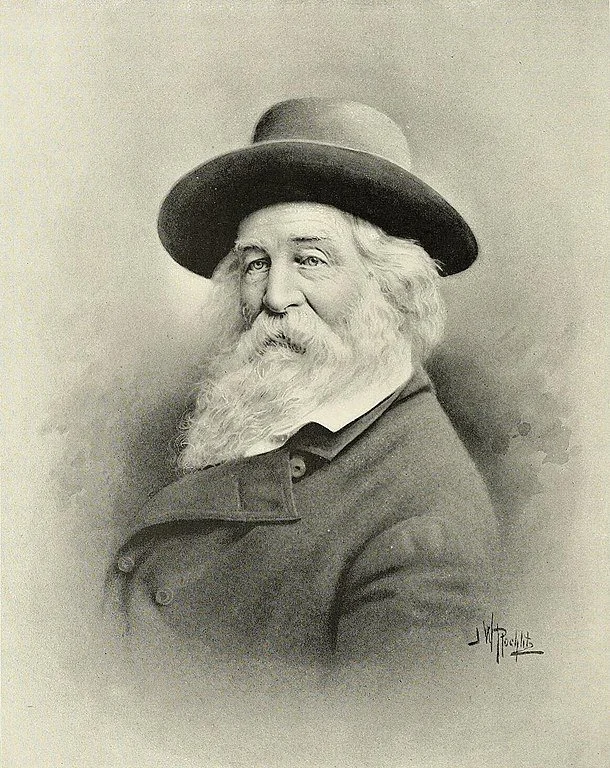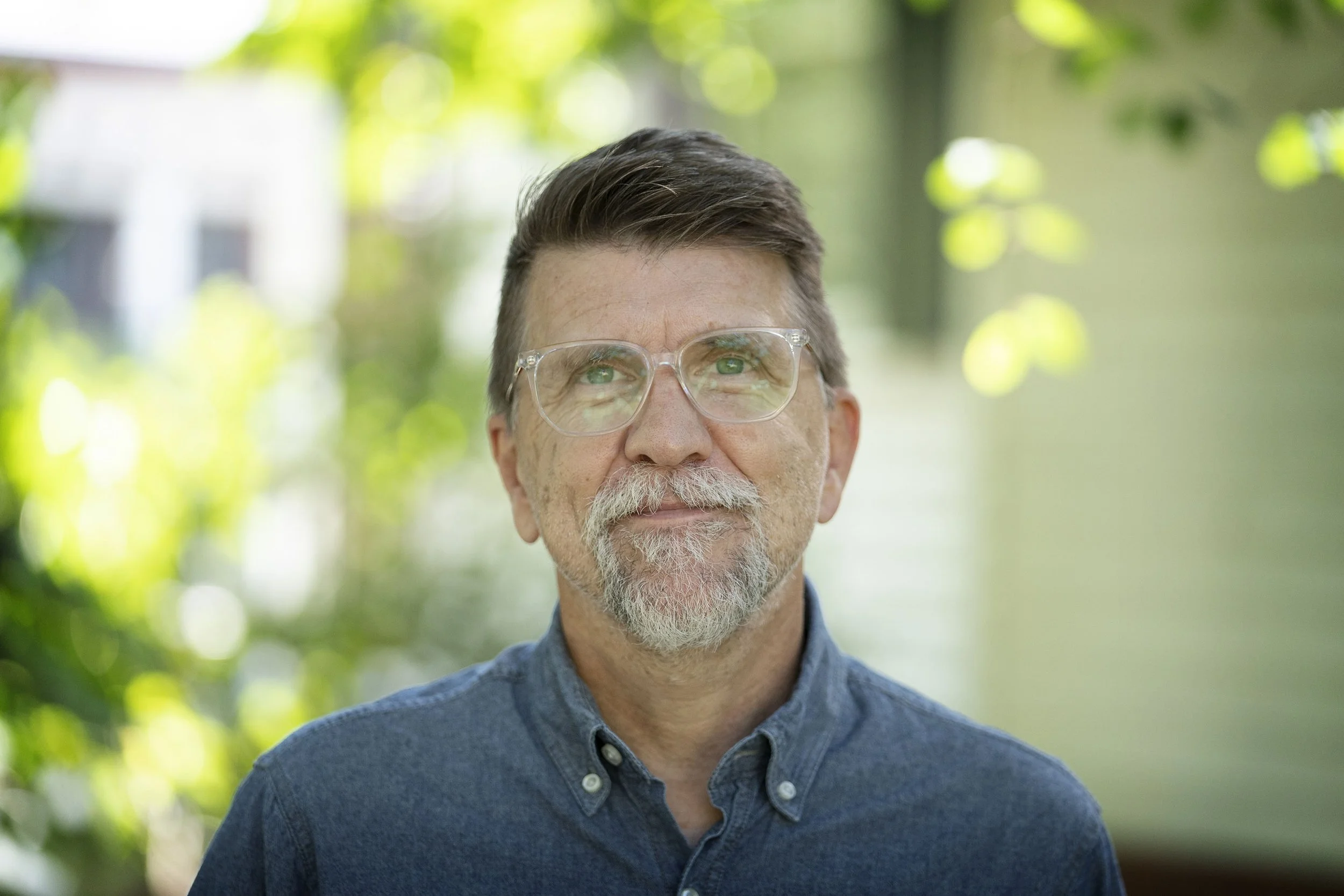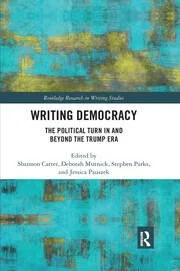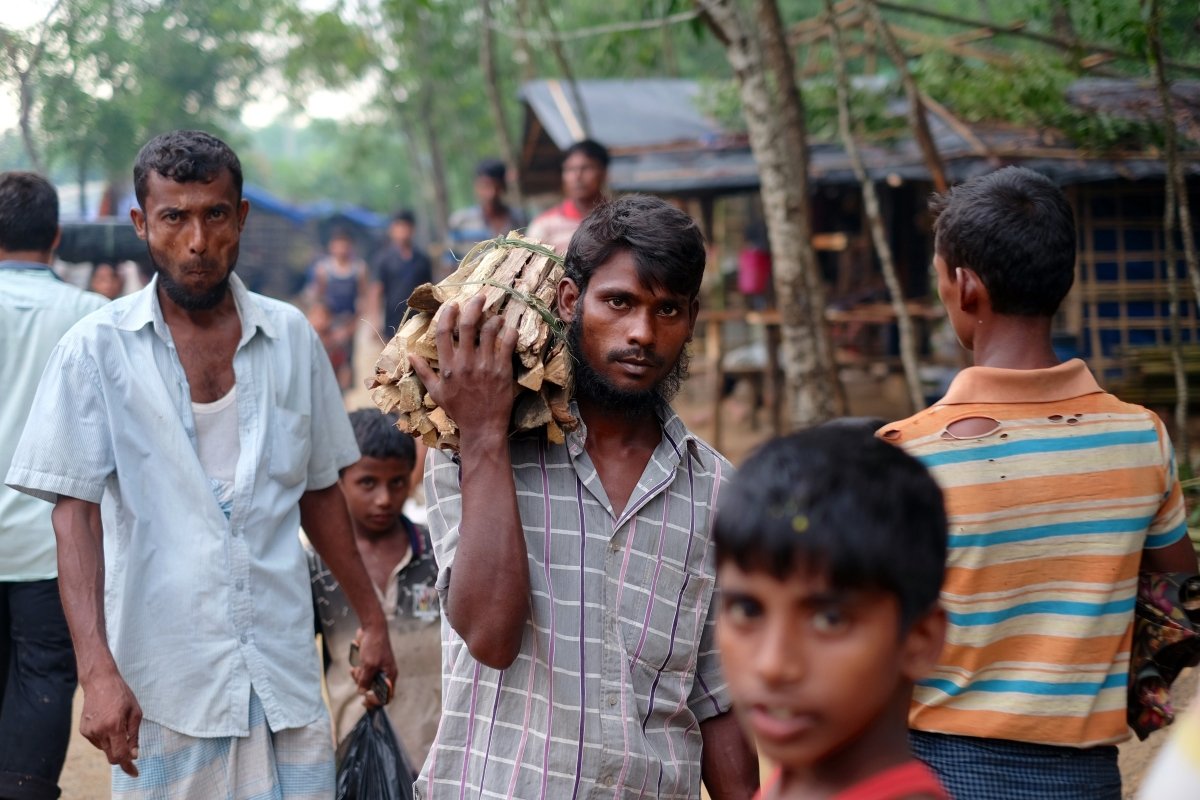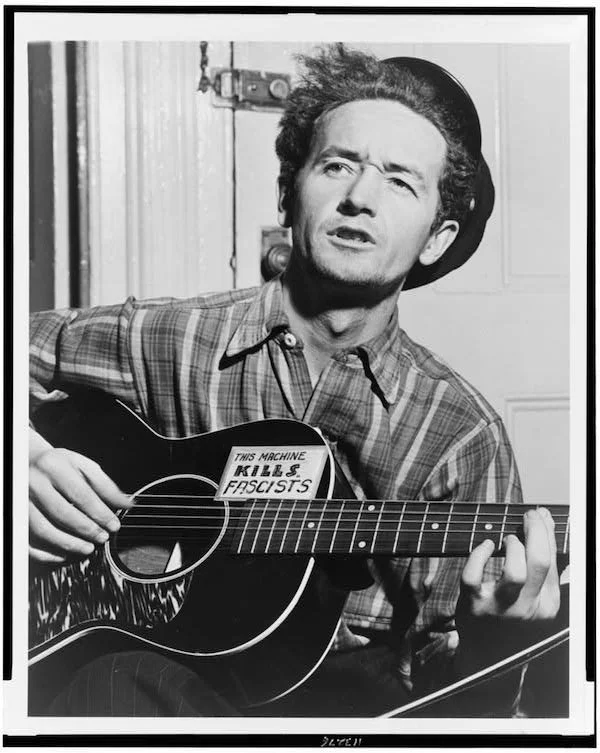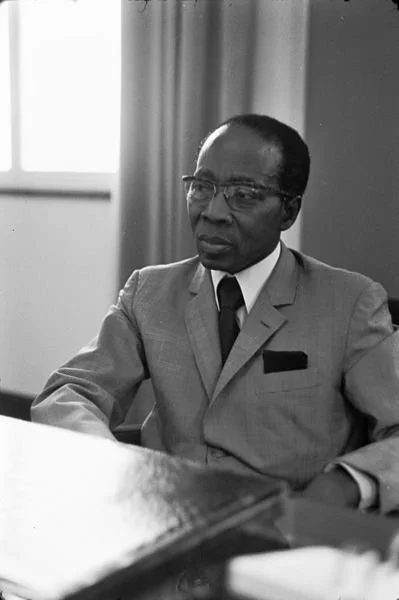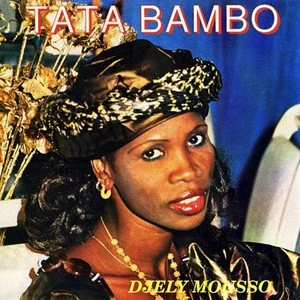We Contain Multitudes
Dear visionaries of the future, democracy needs you.
Read
Poets, painters, novelists, musicians — it turns out they are as crucial to sustaining self-government as politicians and pundits. In a wide-ranging conversation, our hosts speak with English professor Steve Parks about the likes of Walt Whitman, Woody Guthrie, Sinéad O’Connor and the Malian singer Fatoumata Kouyaté. What does their art have in common? Spoiler: an affective sense of democracy. Plus, Parks shares our plans for a new segment on international activists. We’re calling it “The Power of Many.”
Meet
Stephen J. Parks is a professor of English at the University of Virginia and director of the Democratic Futures Project. He co-founded of Syrians for Truth and Justice, which documents human rights abuses. Parks regularly brings pro-democracy activists from around the world for short residences at UVa, where they meet with scholars and students to discuss their efforts to support freedom in their home countries. He is working with our production team on developing a regular audio segment featuring many of those advocates. Parks has supported our work in several earlier episodes. He recently guest-hosted “Resisting Russia’s War” and “Fighting with Song.” Follow him @StephenJParks.
Writing Democracy — a new volume co-edited by Parks — unpacks the ways that teachers of writing and rhetoric have an important role to play in protecting democracy.
Working in conjunction with Middle East and North African activists, Parks has previously argued for the importance of using the appropriate language to describe social movements.
Myo Yan Naung Thein, one of the activists Parks has helped bring to UVa, spoke with D in D on a previous episode about the struggle against military dictatorship in Myanmar.
Parks has long been committed to providing activists with platforms. He helped found the New City Press, a project that provides community organizers with the resources to tell their stories.
The New Press emerged out of Parks’s collaboration with the Federation of Worker Writers and Community Publishers. You can read more of their poetry and other writing in the project’s digital library.
Learn
UVa English professor Mark Edmundson argues in The Atlantic that Whitman’s poetry has important lessons for self-rule in the 21st century. Edmundson expanded his work on Whitman into a book-length study. It offers a close reading of Whitman’s Song of Myself.
As Parks mentions on this episode, folk icon Woody Guthrie was able to travel, while many activists cannot. Read all about Guthrie’s many travels in Will Kaufman’s 2019 book.
Kaufman has also spoken about Guthrie’s radical politics, noting how “This Land is Your Land” became depoliticized over time. Rage Against the Machine guitarist Tom Morello channeled the song’s pro-labor origins while leading Hollywood actors in a rendition of the song on the picket line this past summer.
Popular music remains as important as ever to the success of movements for social justice. A judge in Hong Kong recently derailed the Chinese government’s attempt to suppress one of the most important anthems that emerged during the 2019 protests.
Women are revolutionizing hip hop in Senegal. Artists and musicians like Sister LB are using their music to fight for women’s rights. Meanwhile, one of Senegal’s most famous artists, Baaba Maal, released his first album in seven years in early 2023. The music video for the single “Freak Out” features scenes from the Blues Du Fleuve Festival. Maal co-founded the festival, which brings together activists, musicians and artists in his hometown of Podor.
Senegal’s first president, Léopold Sédar Senghor, was a poet who spoke out against French colonial rule by playing on the language and style of the metropole. His celebrated “Prière de paix” (peace prayer) demanded justice with Roman Catholic imagery. In the new book Senghor’s Eucharist, the religion scholar David Tonghou Ngong explores how Senghor laid bare the contradiction of racism embedded in European Christianity.
Fans around the world mourned Sinéad O’Connor’s death in July. Allyson McCabe explains why O’Connor still matters today — and what we can learn from the outspoken artist’s career.
Revisit the provocative Saturday Night Live performance that made O’Connor a household name. Writing for The Nation, correspondent John Nicholas offers a reminder that O’Connor had been insisting that black lives matter decades before the murder of Michael Brown in Ferguson, Mo., which sparked a new movement for racial justice in 2014.
Want to learn more about the Malian singer-songwriter Fatoumata (a.k.a. Tata Bambo) Kouyaté? Check out this oral history discussing her original performance of “Bambo.”
Mali’s musicians, by the way, are back in the headlines after a well-known performer accepted an appointment as special advisor to the military regime, a move that has baffled his fans. The Malian military seized power in a coup two years ago, and this month signed a non-aggression pact with neighbors Burkina Faso and Niger — on the pretense of anti-terrorism efforts.
Heard on the show
The show opened — and closed — with a medley of some classic readings from Walt Whitman’s Song of Myself. Credit goes to Eric Forsythe and the Walt Whitman Archive, where you can hear much more. We scored the Whitman readings with Dee Yan-Key’s “Lied des Harfenmädchens,” or “song of the harp girl.”
Also on this episode: a touched-up clip of Guthrie doing “This Land Is Your Land”; O’Connor’s “Black Boys on Mopeds,” originally released on the 1990 album I Do Not Want What I Haven’t Got; and Tata Bambo Kouyaté singing “Bambo,” off of Djely Mousso (1988).


